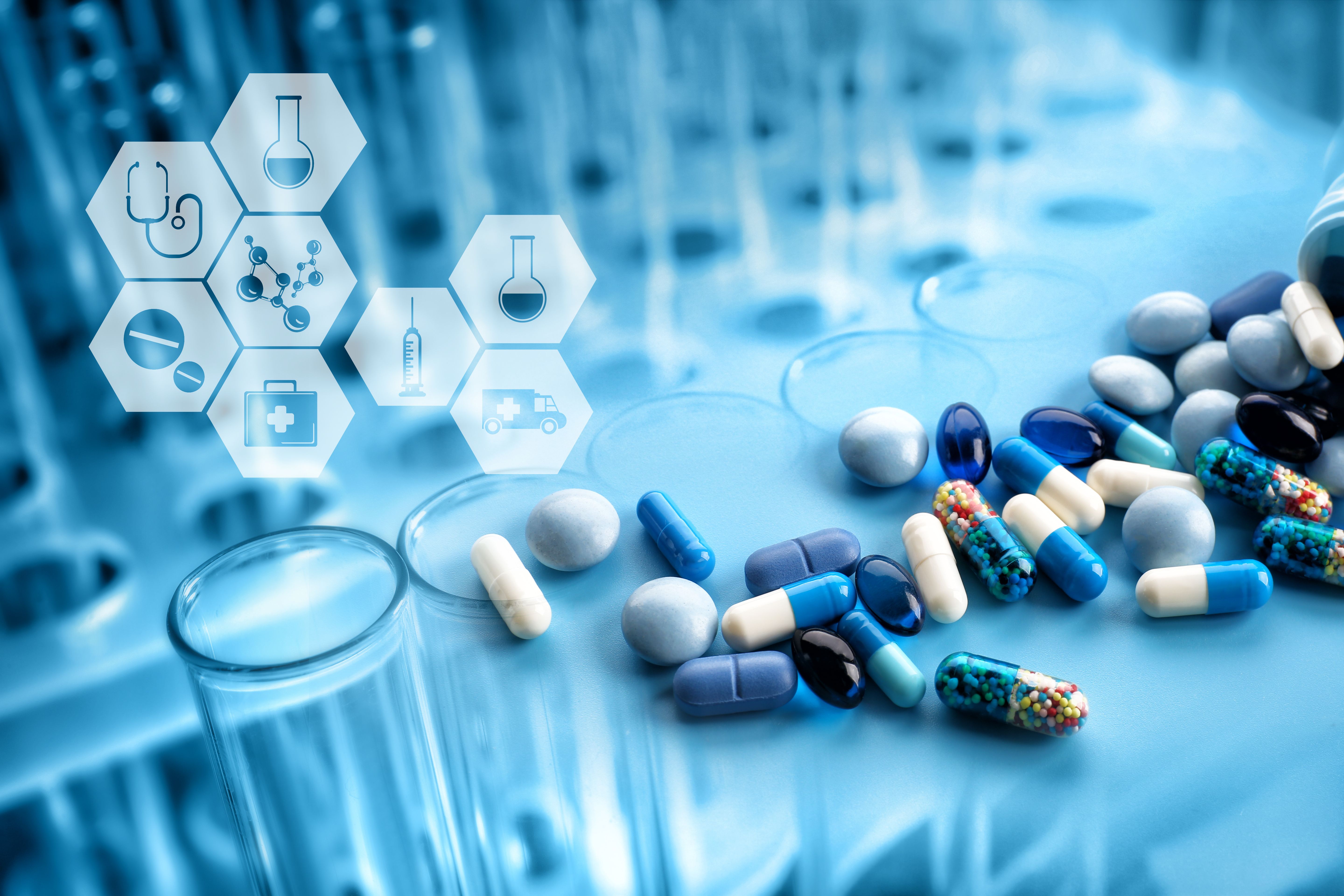Why Generic Medicines Are the Smart Choice for Your Health and Wallet

Why Generic Medicines Are the Smart Choice for Your Health and Wallet
In today’s world, healthcare costs are a significant concern for many individuals and families. Prescription medications, in particular, can strain budgets, especially for those managing chronic conditions. Enter online generic medicines a cost-effective alternative to brand-name drugs that deliver the same quality, safety, and effectiveness at a fraction of the price. Choosing generic medicines is not only a smart financial decision but also a practical way to prioritize your health without compromise. In this blog, we’ll explore what generic medicines are, why they’re just as reliable as brand-name drugs, and how they benefit both your health and your wallet.
What Are Generic Medicines?
Generic medicines are medications that contain the same active ingredients, strength, dosage form, and route of administration as their brand-name counterparts. They are designed to perform identically in the body, providing the same therapeutic benefits. The primary difference lies in the name, packaging, and price generic drugs are typically sold under their chemical name rather than a marketed brand name.
For example, Sildenafil Citrate is the generic version of the brand-name drug Viagra, used to treat erectile dysfunction. While both work in the same way and contain the same active ingredient, the generic version is significantly more affordable. Generic medicines are approved by regulatory authorities, such as the U.S. Food and Drug Administration (FDA) or the World Health Organization (WHO), only after rigorous testing to ensure they meet strict standards for safety, efficacy, and quality.
Why Generic Medicines Are Just as Effective
A common misconception is that generic medicines are inferior to brand-name drugs because of their lower cost. Contrary to popular belief, the opposite is true. Here’s why generic medicines are equally effective:
-
Same Active Ingredients: Generic drugs must contain the identical active ingredient(s) as the brand-name version, ensuring they produce the same therapeutic effect.
-
Bioequivalence: Regulatory agencies require generics to be bioequivalent to their brand-name counterparts, meaning they are absorbed into the bloodstream at the same rate and extent. This ensures comparable performance in the body.
-
Stringent Standards: In order to meet the same safety, quality, and manufacturing standards as brand-name medications, generic medicines undergo stringent testing. For instance, the FDA ensures that generics are produced in facilities that adhere to Good Manufacturing Practices (GMP).
-
Proven Track Record: Generic medicines have been used safely for decades, with millions of patients worldwide relying on them for conditions ranging from hypertension to infections.
The only differences between generic and brand-name drugs are typically inactive ingredients (e.g., fillers or dyes) and appearance (e.g., color or shape). These variations do not affect the drug’s effectiveness or safety.

How Generic Medicines Save You Money
One of the most compelling reasons to choose generic medicines is their affordability. Here’s how they help your wallet:
-
Lower Production Costs: Generic manufacturers don’t need to invest in the extensive research, development, or marketing that brand-name companies do. Because of this, they are able to provide the same medication at a lower cost.
-
Competitive Pricing: Once a brand-name drug’s patent expires, multiple manufacturers can produce generic versions, driving competition and further reducing costs. For example, generic statins for cholesterol management can cost up to 80–90% less than their brand-name equivalents.
-
Insurance Benefits: Many insurance plans and government healthcare programs encourage or require the use of generics, offering lower co-pays or full coverage for these medications.
-
Accessibility for All: Affordable generics make life-saving treatments accessible to people who might otherwise struggle to afford brand-name drugs, particularly in low-income or uninsured populations.
For instance, a month’s supply of a brand-name medication like Lipitor (atorvastatin) might cost $100–$200, while the generic version could be as low as $10–$20. Over time, these savings add up, especially for those managing multiple prescriptions.
Benefits Beyond Cost Savings
While the financial advantages of generic medicines are clear, their benefits extend beyond your wallet:
-
Improved Access to Treatment: Lower costs mean more people can afford essential medications, ensuring better management of chronic conditions like diabetes, hypertension, or asthma. This leads to improved health outcomes and fewer complications.
-
Encourages Medication Adherence: When medications are affordable, patients are more likely to take them as prescribed, reducing the risk of untreated conditions or hospitalizations.
-
Supports Public Health: Widespread use of generics frees up healthcare system resources, allowing governments and insurers to allocate funds to other critical areas, such as preventive care or research.
-
Global Impact: In developing countries, generic medicines are often the only viable option for treating widespread conditions like HIV/AIDS, malaria, or tuberculosis, saving millions of lives.
By choosing generics, you’re not only making a smart choice for yourself but also contributing to a more equitable and sustainable healthcare system.
Addressing Common Myths About Generic Medicines
Despite their proven effectiveness, some people hesitate to use generic medicines due to myths or misconceptions. Let’s debunk a few:
-
Myth: Generics Are Less Effective: As mentioned, generics are bioequivalent to brand-name drugs and must meet the same regulatory standards. Studies show no significant difference in outcomes between generics and their brand-name counterparts.
-
Myth: Generics Are Unsafe: Generic medicines are subject to the same rigorous safety and quality checks as brand-name drugs. Regulatory agencies like the FDA closely monitor their production and performance.
-
Myth: Generics Take Longer to Work: Because generics are bioequivalent, they work at the same speed and deliver the same results as brand-name drugs.
-
Myth: Generics Are Only for Minor Conditions: Generics are available for a wide range of conditions, from minor ailments like allergies to serious diseases like cancer or heart disease.
If you have concerns about switching to a generic, consult your doctor or pharmacist. They can provide reassurance and explain how the generic version compares to the brand-name drug.
Real-World Examples of Generic Medicines
Generic medicines are used across various health conditions, offering affordable alternatives to brand-name drugs. Here are a few examples:
-
Sildenafil Citrate (Generic Viagra): Used to treat erectile dysfunction, it’s significantly cheaper than Viagra but equally effective.
-
Atorvastatin (Generic Lipitor): A widely used statin for managing cholesterol levels, available at a fraction of the brand-name cost.
-
Metformin (Generic Glucophage): A first-line treatment for type 2 diabetes, helping millions manage blood sugar affordably.
-
Omeprazole (Generic Prilosec): A proton pump inhibitor for acid reflux and ulcers, offering substantial savings.
These generics have transformed access to treatment, allowing patients to manage their health without breaking the bank.

Tips for Choosing and Using Generic Medicines
To make the most of generic medicines, consider these tips:
-
Ask Your Doctor or Pharmacist: Inquire about generic alternatives when prescribed a brand-name drug. Most healthcare providers are happy to recommend generics when appropriate.
-
Check for Availability: Not all medications have generic versions, especially newer drugs still under patent. Your pharmacist can confirm if a generic is available.
-
Verify Quality: Purchase generics from reputable pharmacies or manufacturers to avoid counterfeit products. Look for certifications from regulatory bodies like the FDA or WHO.
-
Monitor Your Response: While generics are bioequivalent, slight differences in inactive ingredients may affect some individuals. If you notice unusual side effects, consult your doctor.
-
Take Advantage of Programs: Many pharmacies and healthcare plans offer discounts or generic drug programs to further reduce costs.
By being proactive, you can ensure you’re getting the full benefits of generic medicines while maintaining your health.
The Broader Impact of Choosing Generics
Opting for generic medicines isn’t just a personal choice it has a ripple effect on the healthcare ecosystem. By reducing medication costs, generics help:
-
Lower overall healthcare spending, benefiting insurers, governments, and taxpayers.
-
Increase access to treatment in underserved communities, both locally and globally.
-
Encourage pharmaceutical innovation by allowing companies to focus resources on developing new drugs rather than maintaining high-priced brands.
In essence, choosing generics is a vote for a more affordable, equitable, and sustainable healthcare future.
Conclusion
Generic medicines are a smart choice for anyone looking to prioritize their health while keeping costs in check. With the same active ingredients, safety, and effectiveness as brand-name drugs, generics offer a reliable way to manage a wide range of conditions without the hefty price tag. From significant cost savings to improved access and better health outcomes, the benefits of generic medicines are undeniable.



